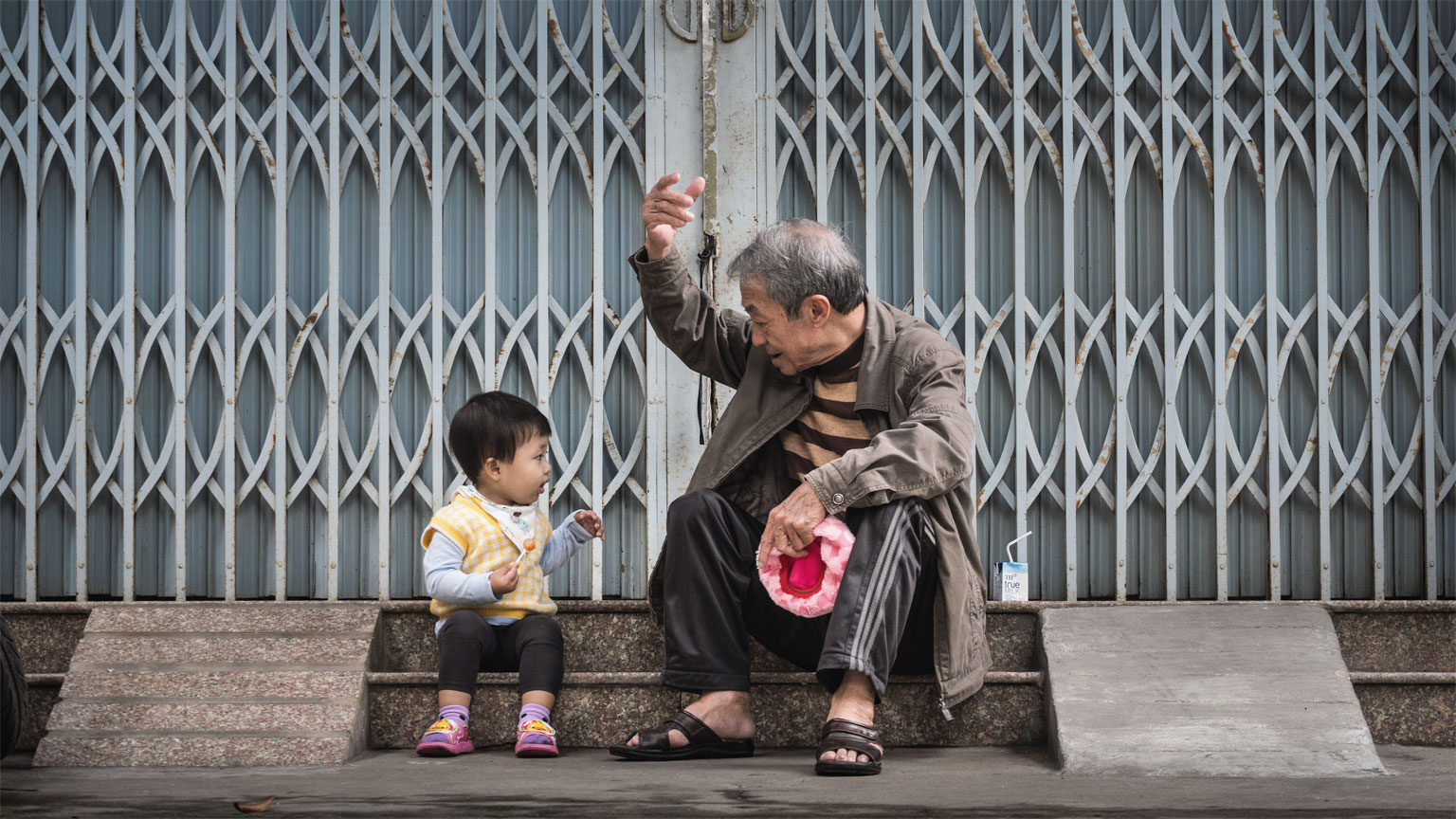
The speed and scale of the global response to COVID-19, while imperfect, demonstrated that with resources and motivation, scientific breakthroughs and large-scale behavior change can happen quickly. What might be possible if similar levels of focus, commitment, and collaboration were applied to other health problems that affect massive populations?
This week, we launched the McKinsey Health Institute (MHI), a non-profit-generating entity within McKinsey, to turn that possibility into reality. MHI’s mission is to catalyze the actions needed across continents, sectors, and communities to realize possible gains in life expectancy and quality of life. MHI is launching with seven initial focus areas critical to the benefit of society, with a near-term priority of brain health.
We sat down with MHI global leaders Tom Latkovic and Martin Dewhurst and co-leader Erica Coe to learn more about MHI, its approach, and how it plans to change things for the better.
Contents
What is the McKinsey Health Institute?
Erica: MHI is dedicated to catalyzing the action required to make a meaningful difference in health around the world. It’s non-profit generating, and it’s not a short-term or time-bound initiative; it’s a new entity that will endure. The premise of MHI is that through unprecedented levels of collaboration, it is possible to not only add years to life but life to years.
Tom: We believe that over the next decade, humanity could add as much as 45 billion extra years of higher-quality life (roughly six years per person on average—and significantly more in some countries and populations) and our mission is to help drive change across continents, sectors, and communities to realize this possibility.
Martin: We know we can’t do this alone. We are fostering a strong network of organizations committed to improving health through a range of collaboration types—convening and enabling leaders, advancing research, creating and promoting open-access data assets, and stimulating innovation. By sharing resources, innovations, data, and insights in the public domain, MHI hopes to galvanize change both directly and through its ecosystem partners.
Tell us more about those opportunities and how MHI might realize them.
Tom: Realizing the opportunity will be no easy task. A critical first step is changing how we define health from just the absence of disease to a broad, holistic approach that accounts for physical, mental, social, and spiritual health, as well as all of the influencing factors that affect health—personal attributes, personal behaviors, interventions, environmental attributes. It will be an approach aligned with individual aspirations, recognizing that health is relevant only to the extent it enables people to live fully—to build relationships, work or volunteer, and contribute to society while also enjoying pursuits.
Martin: It’s also the case that gains in life expectancy and quality of life will require unprecedented collaboration. Shifting society’s mindsets and actions means changes not just in the healthcare industry, but across the private, public, and social sectors. Some of these include approaching health as an investment not an expense, accelerating innovation, scaling what works, and empowering individuals as stewards of their own health.
What will MHI focus on, specifically?
Martin: MHI’s collaborative work will be within areas of health that have often been under-resourced and under-addressed but can have a critical benefit to society. We’re prioritizing those areas that have the most potential to dramatically improve a large number of people’s lives around the world. MHI’s first focus area will be helping people across the world achieve the best possible brain health. Additionally, we will focus on healthy living, infectious diseases, equity and health, healthcare worker capacity, aging, and sustainability and health.
Erica: On brain health, we aim to make progress by strengthening cognitive function, improving mental health, and effectively preventing and treating brain disorders. People with brain health conditions are at unacceptably high risk for chronic disease, disability, and early mortality. As a result, brain conditions account for a large and growing portion of the global disease burden—a challenge substantially worsened by COVID-19. Yet it remains one of the least addressed, least resourced health topics.
Think about what MHI’s overarching goal of adding years to life and life to years means in the context of brain health. There is a 10 to 25-year reduction in life expectancy for people with serious mental illnesses—a huge opportunity to add years to life. In addition, roughly 75 percent of mental disorders appear by the age of 24, meaning that for people without access to high quality prevention, treatment, or recovery services, most of their lives may be spent in poor quality health—a huge opportunity to add life to years. There is a clear and urgent need to focus on brain conditions and start to make progress towards this goal.
Those are broad categories and big problems. How is MHI going to solve them?
Tom: Through an approach that supports an ecosystem. We’re going to convene and enable leaders from governments, non-profits, for-profits, and academia to share their learnings and act. As part of McKinsey, we can support this group with research and data. We’re working with an ecosystem of experts and partner institutions to design, conduct, and share research on what works and why. We’re also creating and promoting open-access data assets to empower everyone working on health issues. Finally, we’re working to stimulate innovation through crowdsourcing and competitions.
Erica: Within brain health, we already have significant momentum from our work through the Center for Societal Benefit through Healthcare, a foundation we’re building on with MHI. For example, we’ve already invested in critical areas such as supporting employee mental health and well being, addressing youth mental health needs and child trauma, integrating primary and behavioral health care, and improving community-based crisis response.
Our momentum and success are directly related to the remarkable institutions we’ve collaborated with—that ecosystem that Tom describes. For example, bringing together the clinical expertise and public-sector missions of partners with McKinsey’s strengths in strategy, analytics, design, and organizational health to create meaningful impact. We are keen to deepen and extend these collaborations as we move forward.
What will success look like?
Tom: Achieving 45 billion years of higher-quality life requires a number of important shifts, such as more investment in health, disproportionally in promotion and prevention; new measurement standards covering physical, mental, social, and spiritual health and recognizing the underlying influencing factors of health; and employer recognition of health as a business priority. Success for MHI is catalyzing action to enable and accelerate these shifts in a meaningful way.
Where does your passion for this topic come from?
Erica: The brain health focus of MHI is where my heart lies. My family, like many, has been touched by mental health challenges. Seeing all of the difficulties with the mental health care system in the U.S. first-hand inspired me to dedicate my career to improving outcomes. Fifty percent of people will have a mental or substance use disorder during their lifetime. That could mean you or a loved one – it touches all of us, regardless of age, income, geography, education, or where one is in life. To have the privilege of leveraging McKinsey’s global platform to solve such an under-resourced, under-addressed challenge – it gives me hope that we can make a difference.
Martin: My professional focus for nearly 30 years has been to improve health—primarily through serving life sciences companies across Europe, US, Asia, and the Middle East and Africa. I am excited about the opportunity to extend and deepen this impact through MHI. I believe the combination of our broader definition of health, our commitment to partnering with others, and the non-profit generating part of our mission opens the aperture to make an important contribution to improving health over the next decade and beyond.
Tom: I am grateful to be part of MHI. I find deep purpose and fulfillment in trying to help improve the health of my community and those around the world. Strong health makes it easier to fully use our gifts and live fully. I am also impatient—in a constructive way. I know humanity possesses the insight and resources to demonstrably improve people’s health, and I know we can achieve progress if we choose. I hope to channel that energy to drive more action with greater urgency.
Finally, what does this move say about McKinsey?
Erica: That McKinsey is unequivocally committed to making a difference in health. That we believe in transformative innovations and are committed to bringing people together to make a difference. The launch of MHI puts a stake in the ground that we think it is possible to achieve 45 billion extra years of higher-quality life over the next decade—so much so that we’re committing to invest resources long-term to make a difference.
[“source=mckinsey”]







